Mike Lawrence - The Complete Book on Overcalls
Here you can read online Mike Lawrence - The Complete Book on Overcalls full text of the book (entire story) in english for free. Download pdf and epub, get meaning, cover and reviews about this ebook. year: 2009, publisher: Master Point Press, genre: Home and family. Description of the work, (preface) as well as reviews are available. Best literature library LitArk.com created for fans of good reading and offers a wide selection of genres:
Romance novel
Science fiction
Adventure
Detective
Science
History
Home and family
Prose
Art
Politics
Computer
Non-fiction
Religion
Business
Children
Humor
Choose a favorite category and find really read worthwhile books. Enjoy immersion in the world of imagination, feel the emotions of the characters or learn something new for yourself, make an fascinating discovery.
- Book:The Complete Book on Overcalls
- Author:
- Publisher:Master Point Press
- Genre:
- Year:2009
- Rating:3 / 5
- Favourites:Add to favourites
- Your mark:
- 60
- 1
- 2
- 3
- 4
- 5
The Complete Book on Overcalls: summary, description and annotation
We offer to read an annotation, description, summary or preface (depends on what the author of the book "The Complete Book on Overcalls" wrote himself). If you haven't found the necessary information about the book — write in the comments, we will try to find it.
The Complete Book on Overcalls — read online for free the complete book (whole text) full work
Below is the text of the book, divided by pages. System saving the place of the last page read, allows you to conveniently read the book "The Complete Book on Overcalls" online for free, without having to search again every time where you left off. Put a bookmark, and you can go to the page where you finished reading at any time.
Font size:
Interval:
Bookmark:
www.masterpointpress.com
Our main site, with information about our books and software, reviews and more.
www.teachbridge.com
Our site for bridge teachers and students free downloadable support material for our books, helpful articles, and more.
www.ebooksbridge.com
Purchase downloadable electronic versions of MPP books.
www.bridgeblogging.com
Read and comment on regular articles from MPP authors and other bridge notables.
For Karen, who made sure I said what I meant and said it correctly.
Thanks.
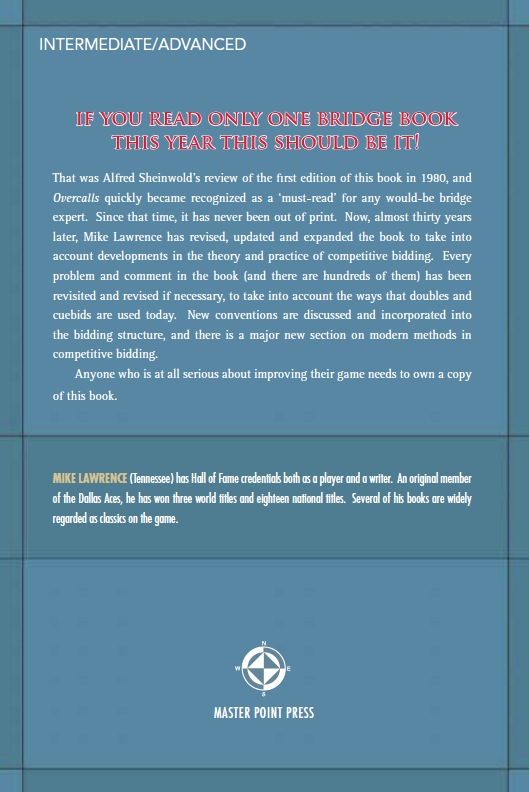
ONE-LEVEL OVERCALLS
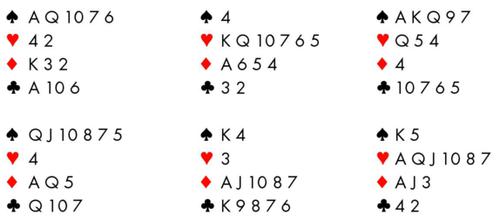
These hands should all be automatic overcalls regardless of the form of bridge you play. In all cases you have both a good suit and values approximating an opening bid. If you felt like passing any of these hands, I would have to say you were being far too conservative. Also, if you passed any of these you will nd some of my later ideas hard to accept.
At the other extreme, none of these hands is worth a takeout double with the intention of showing a suit later. That action would be too aggressive.
In the following hand, neither side is vulnerable and RHO opens 1.

At matchpoints, where overtricks are of such concern, there is much to be said for overcalling at the one-level on any hand including a good suit. Here, 1 has almost everything going for it except that game is unlikely.
You want a spade lead. Your overcall will take away signicant bidding room from the opponents. Its better for you in general to bid right away rather than to wait and permit the opponents an unimpeded discussion. True, you may be able to balance later, but why wait? This hand is also sufciently strong to bid 1 at IMPs, although that is beginning to stretch things.
When considering whether or not to overcall, you should realize the distinction between matchpoints and IMPs. Matchpoints is a wild struggle where every hand is a separate battle. Winning a hand by an extra trick may be as good a result as getting +800. The worst you can do is get a zero. If on one round you steal a trick in 2 and make an overtrick for +110 and get a top on the rst board, and then on the next board you go down 800 and get a zero, you have achieved an average round.
At IMPs, you may gain one IMP for your extra trick in 2, but you may lose 14 for your 800, and your net is minus thirteen IMPs. A disaster. This means that at IMPs you must be far more conscious of safety than at matchpoints. As you will see, I recommend an aggressive stance at IMPs as well as at matchpoints, but tempered with a reasonable amount of caution.
Incidentally, there is one aspect of matchpoints which will become more and more evident as we go along. I will refer to it constantly.
Good matchpoints is almost never good bridge.
You have to learn to play badly. Theres a number of things you can do which are theoretically wrong, but at matchpoints they work a high percentage of the time. And this is what matchpoints is all about. If you want to win, and to win a lot, you have to learn what works and what doesnt. And you have to be able to take the hard knocks with the rest of your results. If you cant stomach going for your life every now and then, you will probably get a lot of 167s and 172s but you wont get many wins. You have to determine your goals.
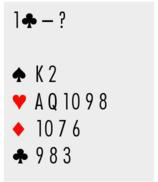
Here, 1 is fairly straightforward. Your suit affords protection against a double and prospects for a small plus score are adequate. Overcall at IMPs as well.
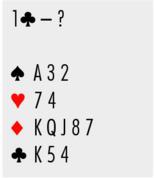
1. Again, it should be automatic. Good hand. Good suit. Game is not even unlikely. An important point of this hand is that your 1 overcall does not do much to inconvenience your opponents.
You should be aware of two situations when considering an overcall. These auctions, 11 or 12, are far and away the most difcult for your opponents to handle. You have effectively removed the one-level from their available responses, making it hard for them to cope. Anytime responder has a few points, but not enough for a two-level response, he is going to be awkwardly placed. Some of the time he may be able to make a negative double but as youve seen, that may not work if responders hand is unsuited.
Conversely, 1 over 1 and 1 over 1 do little to obstruct the opponents. This means that on hands where you are not sure about overcalling, you might lean toward bidding if your bid will prove awkward for the opponents.
In the following hands, they open 1 on your right. Assume that no one is vulnerable.
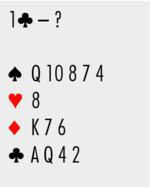
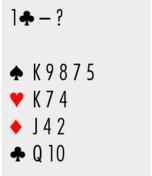
Bidding with this hand is a stretch. I might think of bidding 1 on the theory that it makes things hard on the opponents, but even at matchpoints pass is probably best. At IMPs this is a clear-cut pass. Your maximum is likely to be a partscore and you could easily go for a substantial number. If you can get four tricks out of this, down three would still be 500 if 1 gets doubled.
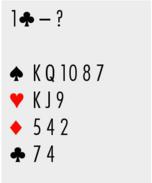
This hand has the same high cards and the same distribution as the previous hand. But now the high cards are all working in that they reinforce each other. And your suit is now rather good. Before, it was not. At matchpoints this becomes a reasonable overcall and even at IMPs it is an acceptable minimum. Even though you may go for a number, you are well placed to contend for a partscore. And you do want a spade lead. Again, the quality of your suit is a major consideration when making an overcall on a minimum hand.
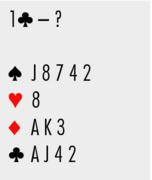
1. This hand falls into a family of hands where you have good values but no particularly good bid. It is true that some good hands afford no convenient way to enter the auction. But, when you have a good hand which includes a ve-card suit, even a bad ve-card suit, it may be possible and even desirable to overcall. Even at IMPs, an overcall is clear-cut. Look at your potential. If partner has as little as any four spades, you can probably make a partscore and even game is possible. Here is the kind of layout you hope to nd. You might make game with these two hands.
Font size:
Interval:
Bookmark:
Similar books «The Complete Book on Overcalls»
Look at similar books to The Complete Book on Overcalls. We have selected literature similar in name and meaning in the hope of providing readers with more options to find new, interesting, not yet read works.
Discussion, reviews of the book The Complete Book on Overcalls and just readers' own opinions. Leave your comments, write what you think about the work, its meaning or the main characters. Specify what exactly you liked and what you didn't like, and why you think so.

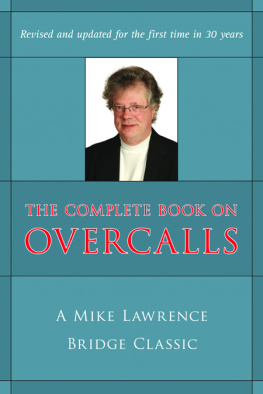

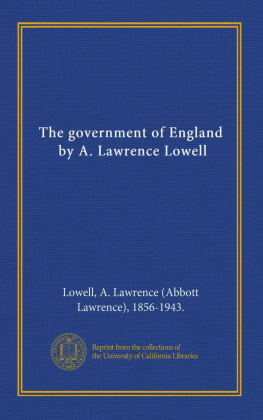



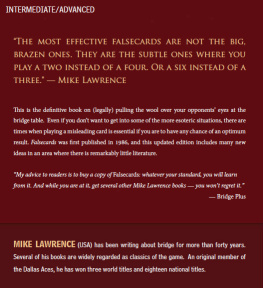

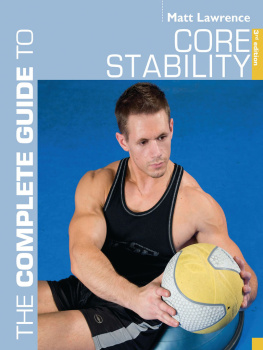
![D. H. Lawrence [Lawrence - Sons and Lovers [Annotated Version]](/uploads/posts/book/61295/thumbs/d-h-lawrence-lawrence-sons-and-lovers.jpg)